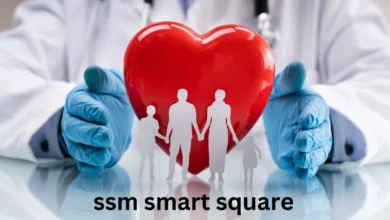Over the last few years, the health sector has faced medical fraud and identity theft threats. The healthcare industry is a very susceptible sector as it contains information about patients’ medical histories and identities. Imposters use advanced technologies to breach patients’ records and sell them on the black market for money gains. Scammers are also involved in malicious activities where they steal patient’s medical prescriptions and use them to purchase drugs. The healthcare sector must use advanced verification tools to authenticate the patients’ identity before giving them access to medical services.
Why is there a Need for Identity Verification Services?
Identity verification services in the healthcare sector authenticate the patients’ identities using advanced technologies to mitigate unauthorized access to medical services. ID verification ensures that the patient’s records are protected from identity theft. Hospitals contain sensitive patient information that must be protected from fraudulent reach. By implementing digital identity verification tools, such as biometric verification, face detection, and OCR services, can track the patients’ records and protect them from unauthorized access. The healthcare sector must comply with Know Your Patient [KYP] regulations to accurately verify patients’ backgrounds and provide secure medical services.
Importance of Biometric Identity Verification in the Healthcare Sector
Biometric verification provides an enhanced security layer in the healthcare sector. These identity verification services verify the patient’s minor details to ensure that only the legitimate and authorized patient is accessing the medical services. In the biometric system, validation of identities is conducted through fingerprint scanning and voice detection. The patient’s fingerprints are recorded and scanned later to ensure the patient’s legitimacy. The patients can only access the medical services after confirming their fingerprints.
The medical service providers can use these biometric verification services to combat the impersonation risks and protect medical records from being misused. Through the authentication of verified identities, the healthcare sector can reduce the risk of medical fraud and increase its workflow because biometrics makes the verification process faster and more accurate. This improves patients’ trust in the medical facilities and the sector’s overall reputation.
Why is Face Detection Identity Verification Crucial for Patient’s Security?
The healthcare sector can improve the protection of patients by incorporating face detection measures. They can use the liveness detection technology to detect the patient’s facial features and characteristics. Through face liveness detection, medical service providers can detect the patient’s unique facial textures and patterns. It incorporates the use of video KYC services in which patients are prompted to perform certain actions to confirm their identity. It prevents unauthorized individuals from accessing the medical records.
Through facial recognition technology, medical errors, data breaches, and misidentification can be mitigated, which enhances the patient’s overall medical experience. They can get verified accurately and quickly through face verification services. The patient’s safety is enhanced with authentication of ID because these facial recognitions comply with the HIPAA regulations, which ensures the protection of patients’ sensitive information and medical records.
How Does the OCR Identity Verification Service Streamline the Healthcare Sector Operations?
Optical character recognition services streamline the healthcare sector’s operations because they improve the data extraction process. This system enables medical service providers to extract piles of text-based data and convert them into a digital format without the need to manually enter individual data into the hospital’s database. It improves data accuracy as medical records are entered through automated technology. It reduces the presence of human-generated errors that might occur if these records were entered manually.
This service streamlines the healthcare sector by extracting piles of data in a very short timeframe, thus increasing the efficiency and protection of patient’s medical prescriptions and records. It allows all the patients’ records to be accessed through online platforms, which is very convenient for patients. The OCR services ensure compliance with the regulations which makes them more secure and patient friendly.
KYP Solutions for Better Patient Experience
KYP is a risk mitigation service for the patient’s betterment. This process ensures that the patient is provided with a secure onboarding experience and stays protected from any sort of medical fraud. It enunciates that the patient’s medical prescriptions and records must be protected from external unauthorized threats through proper identity verification. This service conducts the patient’s age and biometric verification for a secure treatment process.
Concluding Remarks
Identity verification is necessary for the healthcare sector to protect patients from medical fraud and unauthorized access. The sector can use digital identity verification solutions, such as biometric verification, face recognition, and OCR technologies, to enhance the functioning of medical service providers and protect patients’ records from illicit access. It also ensures compliance with the KYP regulations, which provides a smooth patient onboarding process.
Also Read: https://usatimenetwork.com/




